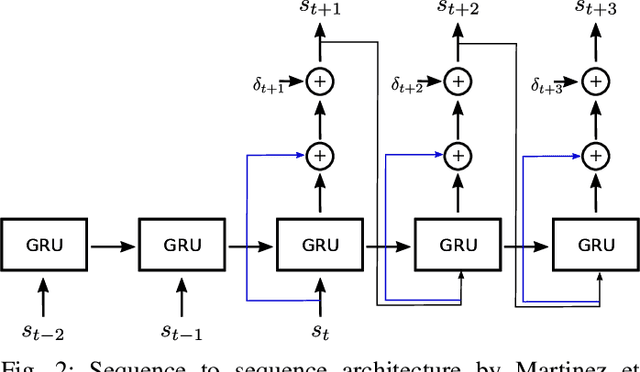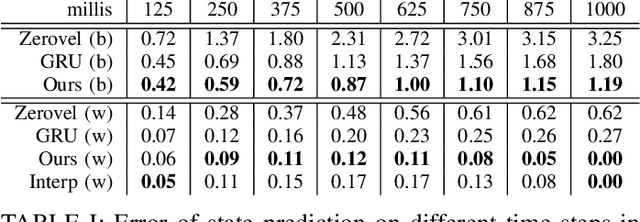Motion Prediction with Recurrent Neural Network Dynamical Models and Trajectory Optimization
Paper and Code
Jun 28, 2019



Predicting human motion in unstructured and dynamic environments is difficult as humans naturally exhibit complex behaviors that can change drastically from one environment to the next. In order to alleviate this issue, we propose to encode the lower level aspects of human motion separately from the higher level geometrical aspects, which we believe will generalize better over environments. In contrast to our prior work~\cite{kratzer2018}, we encode the short-term behavior by using a state-of-the-art recurrent neural network structure instead of a Gaussian process. In order to perform longer-term behavior predictions that account for variation in tasks and environments, we propose to make use of gradient-based trajectory optimization. Preliminary experiments on real motion data demonstrate the efficacy of the approach.
 Add to Chrome
Add to Chrome Add to Firefox
Add to Firefox Add to Edge
Add to Edge